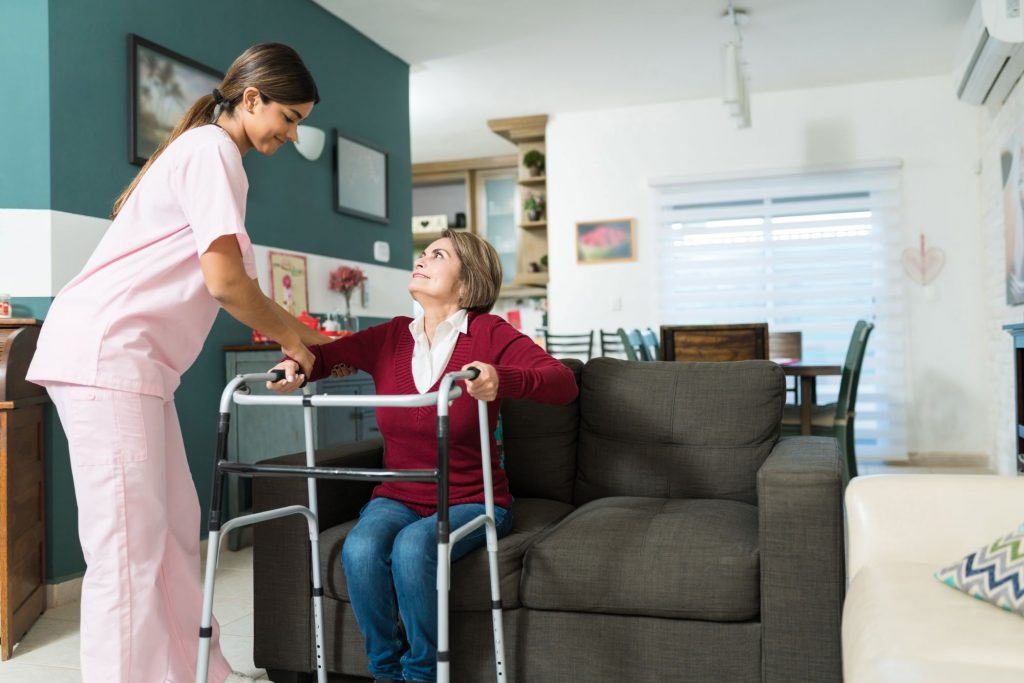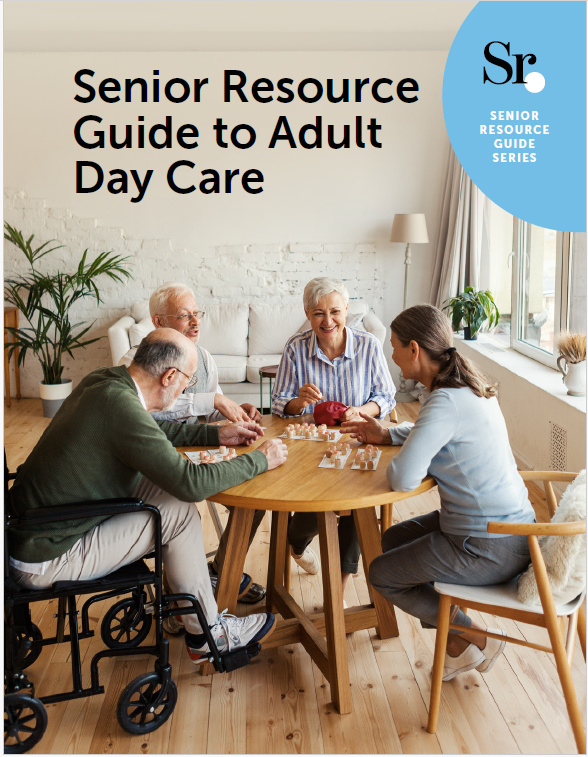How To Choose The Best In-Home Care In 5 Steps

Home care can mean a lot of different things. The phrase is often used as a blanket term to mean any service that can be obtained and utilized in the comfort of your own home. It includes things like personal care assistance, companionship, housekeeping, and even skilled nursing. The breadth of services an in-home care provider will offer varies from one company to another. So, how do you choose the best provider for your loved one? Well, it may be easier than you think!
1. Know your loved one’s needs and determine the proper care.
To prevent an overwhelming planning process, this is a key first step!
Start by answering these simple questions:
| YES | NO | Can your loved one drive safely and with confidence? |
| YES | NO | Are they able to do their own grocery shopping (i.e. planning meals, choosing foods in-store, handling money or a bank card, and loading/unloading their vehicle)? |
| YES | NO | Do they remember to pay bills regularly and on time? |
| YES | NO | If their phone rings, can they hear it? |
| YES | NO | Do they keep a clean, clutter-free home (i.e. they are able to dust, vacuum, mop, and put away items after use)? |
| YES | NO | Does your loved one keep a clean kitchen and bathroom (i.e. they are able to wipe down and sanitize surfaces, clean up after meals, and wash towels regularly)? |
| YES | NO | Do they frequently socialize with friends and family? |
| YES | NO | Are they able to take care of pets (i.e. walking the dog, cleaning the litter box, and feeding daily)? |
| YES | NO | Can your loved one get in and out of bed easily? |
| YES | NO | Can they get in and out of the shower or bathtub safely? |
| YES | NO | Do they maintain overall good hygiene (i.e. washes and brushes hair, wears clean clothing, bathes regularly and completely, brushes teeth, etc.)? |
| YES | NO | Do they regularly prepare their own meals? |
| YES | NO | Can they get around the house safely (i.e. no falls)? |
| YES | NO | If they are on any prescription medication, do they take it regularly and as prescribed? |
| YES | NO | Are they able to get exercise regularly (i.e. walking or any form of appropriate movement for at least 30 minutes per day)? |
| YES | NO | Does your loved one remember things (i.e. not easily confused and know and recognize names, faces, and dates)? |
| YES | NO | Do they make their own health care appointments and do they understand any care plans provided by their primary physician? |
| YES | NO | Can they manage conditions or illnesses safely and effectively with little or no help (i.e. diabetes, high blood pressure, the common cold, influenza, etc.)? |
| YES | NO | Are they able to maintain the yard and do regular home maintenance? |
| YES | NO | Does your loved one need assistance more often than you or someone else can be there (i.e. when you are working or through the night)? |
Now, use your answers to determine the proper care type:
Companionship describes assistance and support that comes from a service, friend, or family member. Companions improve quality of life by providing help with activities of daily living, running errands, and fostering emotional, cognitive, and social wellbeing through their friendship. Companionship can prove to be an essential support for seniors who are often socially isolated. A companion can engage in the care recipient’s favorite activities and hobbies or even accompany them on social outings or shopping trips. They might assist with some light housekeeping, meal prep, and medication reminders too.

Personal care assistance includes non-medical, custodial care essential to maintaining a senior’s dignity, independence, and safety at home. Care may consist of assistance with activities of daily living, mobility, meal prep, and light housekeeping. A personal care assistant (PCA) is a professional trained in these areas. A PCA will help a senior with things like bathing, eating, dressing, and toileting. They may also help with incontinence care and safe transferring.

Skilled care can only be provided by a trained and licensed medical professional. Examples of skilled care are services provided by nurses (like wound care, IV therapy, or other care related to specific conditions), physical therapists, occupational therapists, and speech therapists.

2. Get recommendations.
Recommendations can significantly narrow your search! Here are some great sources to find referrals:
Personal Contacts
Ask your friends, family, co-workers, and neighbors if they’ve ever used an in-home care service, whether it was for themselves or a loved one. Ask if they were pleased with the level of care provided, and then get their explanation of why or why not (if you guys feel comfortable talking specifics).
Professional Contacts
Don’t forget to talk with your loved one’s primary physician or any other medical professional who may be familiar with their health and/or needs. Is there a particular agency these professionals usually refer their patients to? Why do they like that one the most?
Community, Non-profit, & State Resources
Don’t know anyone who can help? No problem! There are entire departments and organizations dedicated to helping seniors find the care they need at local and state levels.
The Eldercare Locator can help you find your state or local Area Agency on Aging.
If after checking your city and state resources you still find yourself looking for more advice, then try some non-profit organizations, like the Alzheimer’s Association or the National Council on Aging. These non-profits advocate for senior health and safety. At the very least, they can provide more info on what you should be looking for.
Related: Seniors, Find Support on a National Level With These Websites
Advertisement.
3. Do your research.
Now that you know your loved one’s needs and what type of care you’re looking for, you can begin researching. If you were given any recommendations, start with those, but, make sure to include other local companies. You might choose which to include based on good customer reviews.
When looking for the best in-home care provider, consider these questions:
| For how long has the company been in business? |
| What is the public saying? Is the provider rated well on sites like Google and Yelp? |
| What is the company’s Better Business Bureau rating? Consumer Reports? |
| Is the in-home care service licensed by the state? |
| Is the company Medicare-certified? |
| What qualifications do employees possess? |
| Does the company website give clear, easy-to-understand descriptions of its services? |
| How are customers billed? |
| Does the company background check its employees? |
4. Contact your top choices.
Start contacting your top choices to ask some questions and set up a consultation. This will be a key method for shortening your list further. You can directly ask anything you want to know about the business and its employees. Take this opportunity to gauge whether the person you speak with is knowledgable, attentive, and seems genuinely engaged in your inquiries. Have some questions ready for whomever you speak with. Don’t forget to ask:
| How much does the in-home care provider charge per hour? |
| How much is overnight care (if applicable)? |
| How are care plans created? |
| Is the provider available for on-call emergency service? |
| Does the company conduct quality assurance checks? |
5. Meet with some in-home care providers.

This final step is going to bring you to the end of your search for the perfect care provider! Make sure that your loved one who will be receiving the care is especially involved in this part! If they’re not comfortable with the person entering their home, then no deal! Take this opportunity to ask any questions you may have forgotten when you first called or emailed. By the time your consultation is over, you and your loved one should have a clear understanding of services, costs, availability, and hours. You should both feel at ease with the provider and feel excited to move forward with them. If any of this is missing, you may want to consider another on your list.
When it’s time for in-home care…

Having an in-home care provider can be an essential part of safely aging in place. Families can relax knowing that their loved ones are being taken care of and, recipients benefit from a continuum of care tailored to their specific needs.
Choosing the best in-home care provider is an important decision and may take longer than expected. But, with these helpful tips, it’s sure to be much easier!
Are you looking for home care? Then start here!
Advertisement.
Need something else?

Whether it’s time for a change, or you’re just doing some research, we can help! Senior Resource is your one-stop spot for all-things retirement! We do the work for you so you have more time to enjoy life.
SeniorResource.com exists to provide aging adults, retirees, and caregivers with applicable, and educational content, relevant to the over 55 community. As such, we address topics like senior housing, nursing care, and aging in place.
Need help with retirement planning? Then, check out Bob Carlson’s Retirement Watch!
Popular Articles About Home Care
Originally published May 04, 2022







